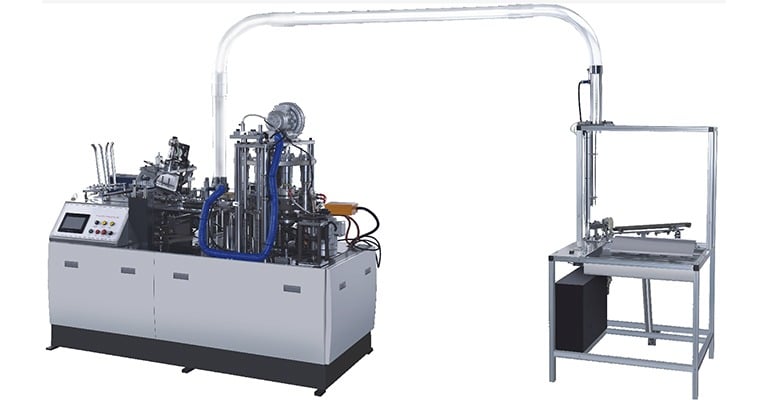Revolutionizing Manufacturing with Innovative Machines: A Deep Dive into the Latest Automation Technologies
LEON MACHINERY
1/11/20254 min read
Introduction: The Future of Manufacturing
In today’s fast-paced manufacturing world, automation and machine innovation are key to staying ahead. The rise of fully automatic machines in various industries—such as the production of cotton swabs, face masks, paper cups, and plastic gloves—has transformed how products are made, packaged, and distributed. As industries demand higher efficiency and quality, the machines involved must meet both criteria. This blog explores some of the most exciting innovations in the market today, offering a detailed look at their features, applications, and benefits.
The Cotton Swab Machine: Precision Meets Hygiene
The cotton swab machine is a perfect example of how automation is reshaping even the simplest products. From producing the cotton swabs to packaging them, automation has streamlined the entire process. With high-speed, precision mechanisms, these machines ensure that each swab meets the highest standards of hygiene and consistency. The cotton swab machine typically comprises five primary components: paper feeder, glue feeder, winding unit, cutting unit, and a gather/collector unit, each contributing to seamless operation. The result? An efficient, clean, and cost-effective process.
Face Mask Machines: Meeting Global Demand with Efficiency
The COVID-19 pandemic brought face mask production into the global spotlight, highlighting the importance of robust, high-output machines capable of meeting surging demands. Today’s automatic face mask machines are designed to produce masks quickly, accurately, and with minimal human intervention. These machines align fabric, weld the nose clip, and attach the ear loops—entirely automatically. With ultrasonic continuous blanking technology, these machines maintain the highest standards of safety, ensuring every mask is made to perfection.
Cap and Shoe Cover Machines: The Hidden Heroes of Safety
In industries where cleanliness and safety are paramount, cap and shoe cover machines play a crucial role. These fully automated systems are designed to manufacture disposable shoe covers and caps for hospitals, clean rooms, and food processing plants. With adjustable settings, these machines can process various materials such as non-woven fabrics and PE plastics. The advantages of automation in this sector include reduced labor costs, improved consistency, and faster production speeds.
Paper Cup Making Machines: From Design to Production
As the demand for sustainable, disposable products grows, the paper cup making machine has become an essential tool in the foodservice and hospitality industries. Machines like the FBN-588 Ultrasonic Automatic Paper Cup Making Machine are designed for high-volume production. Using ultrasonic sealing and advanced molding techniques, these machines ensure the production of high-quality cups that are both durable and eco-friendly. The versatility of these machines also allows for the production of cups with handles, giving manufacturers the ability to cater to specific customer needs.
Plastic Gloves Making Machines: Hygiene and Efficiency
In the medical, foodservice, and industrial sectors, disposable gloves are an essential product. Machines such as the PE & TPE Plastic Gloves Making Machine are designed to produce gloves efficiently, using materials like LDPE and TPE. The machines use sealing and cutting mechanisms to form gloves in various sizes and thicknesses. Not only do these machines ensure consistency, but they also reduce labor costs by eliminating manual glove production. Whether it's for medical use, food preparation, or industrial applications, these machines offer a reliable solution.
Cartoning Machines: Streamlining Packaging for High Demand
Cartoning machines like the HT-ZH100L Automatic Vertical Motion Cartoning Machine provide a crucial solution in packaging automation. This vertical-type machine is designed for high-speed cartoning of a variety of products, from coffee and pasta to pet food and pharmaceuticals. By automating the process, companies can reduce human error, minimize waste, and increase throughput. These machines are perfect for businesses looking to streamline their packaging processes without sacrificing speed or accuracy.
Paper Straw Machines: A Sustainable Choice for the Future
In the wake of growing environmental awareness, paper straws have emerged as a viable alternative to plastic. The demand for paper straws has spiked, and with it, the need for machines that can produce them efficiently. Automatic paper straw machines are capable of creating straws with high precision, using minimal material waste. These machines can handle both single- and multi-strand straw production, allowing for customization to suit different customer needs.
Paper Box Gluing Machines: The Secret to Perfect Packaging
Paper box gluing machines, such as the FBN-800 and FBN-1200, specialize in creating boxes for various applications, from food packaging to retail products. These machines use advanced gluing techniques to secure paper boxes, ensuring that the glue is applied evenly and effectively. With the ability to produce a range of box types—including hamburger boxes and portable food boxes—these machines are highly versatile and adaptable to different industries.
The Role of Automation in Modern Manufacturing
Across all these machines, the common theme is automation. The benefits of using automated machinery are clear: higher output, lower costs, and superior consistency. By incorporating advanced technologies like ultrasonic welding, high-speed cutting, and precision feeding mechanisms, these machines provide manufacturers with the tools they need to stay competitive in a rapidly evolving market.
The Advantages of Investing in High-Tech Machines
Investing in high-tech manufacturing equipment offers a range of advantages. Automation not only improves the speed and efficiency of production but also reduces human error, ensuring higher quality products. With lower labor costs, businesses can pass savings on to consumers while maintaining profitability. Furthermore, automated systems often require less maintenance and are designed to operate for long hours, which makes them a great investment for businesses looking to scale.
Conclusion: Why the Future of Manufacturing Is Automated
The future of manufacturing is undoubtedly automated. From cotton swab production to the creation of paper straws, machines are playing a critical role in ensuring businesses can meet consumer demand while maintaining high standards of efficiency, quality, and sustainability. As technology continues to evolve, we can expect even more advanced machines to transform how we produce everyday products. For businesses looking to stay ahead, investing in automation is no longer optional—it's a necessity.


